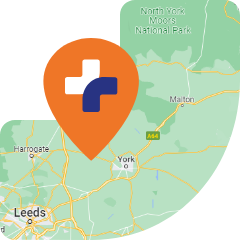Menopause
The menopause is when your periods stop completely due to changes in hormone levels.
- The years leading up to the menopause are called the menopausal transition or perimenopause.
- The menopause usually happens between the ages of 45 and 55
- Symptoms of the perimenopause and menopause vary from person to person


Frequently Asked Questions
The menopause (and perimenopause) is a normal part of aging for women. It is not a disease or disorder. The menopause happens when your levels of oestrogen and progesterone, two hormones made by the ovaries, become lower.
During perimenopause, the body’s production of these hormones can vary greatly and produce many different symptoms.
Our highly trained clinicians can offer advice and treatments that can help you cope better with your menopause symptoms.
The menopausal transition affects each woman uniquely and in different ways. It usually lasts about seven years but it can be as long as 14 years before your periods stop completely.
The length of the transition depends on factors such as smoking, the age perimenopause begins, race and ethnicity. True menopause starts 12 months after your last period.
Eating well, exercising and looking after your mental wellbeing can help reduce symptoms during perimenopause and menopause. If you smoke or drink, cut down or stop.
Get plenty of rest and eat a healthy diet, including calcium-rich food like milk, yoghurt and kale to keep your bones healthy. Weight-bearing activities like walking, running or dancing also help with bone health.
Relax with yoga, tai chi or meditation and share your experiences with other menopausal women you know. You can trust our expert pharmacists to give you the very best advice on how to cope with your menopausal transition.
Pharmacy+Health makes it simpler and more convenient to get the treatment you need. Find out more about the cost of a consultation here.
We promise to give you the very best advice and service.


